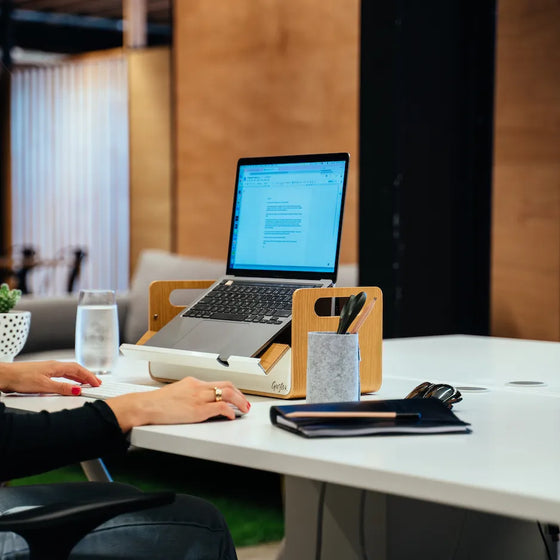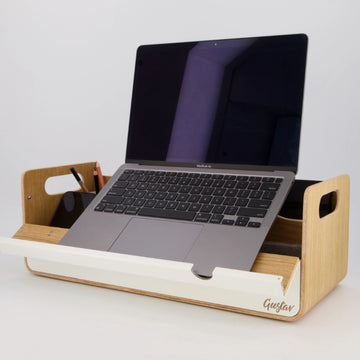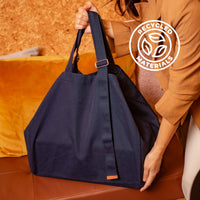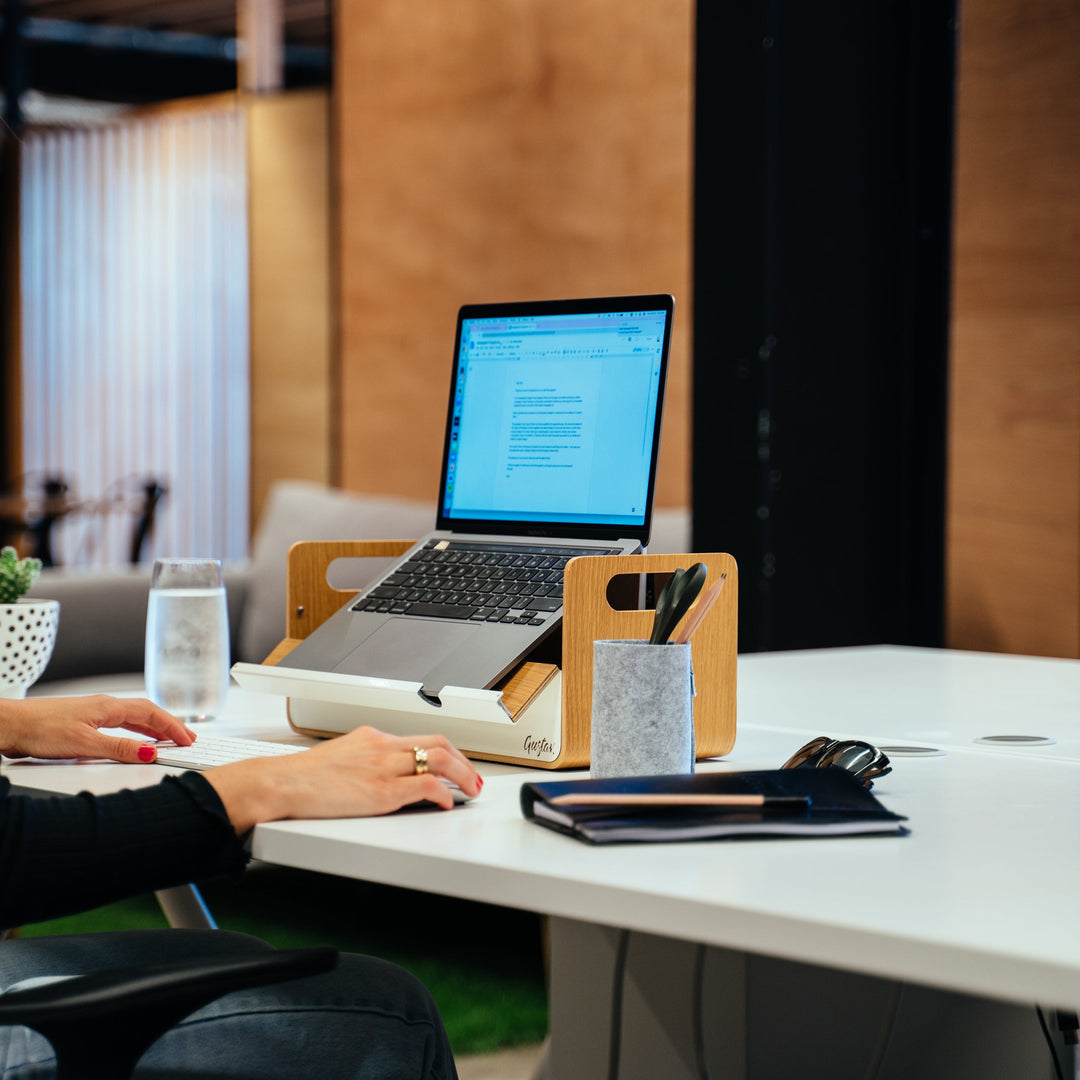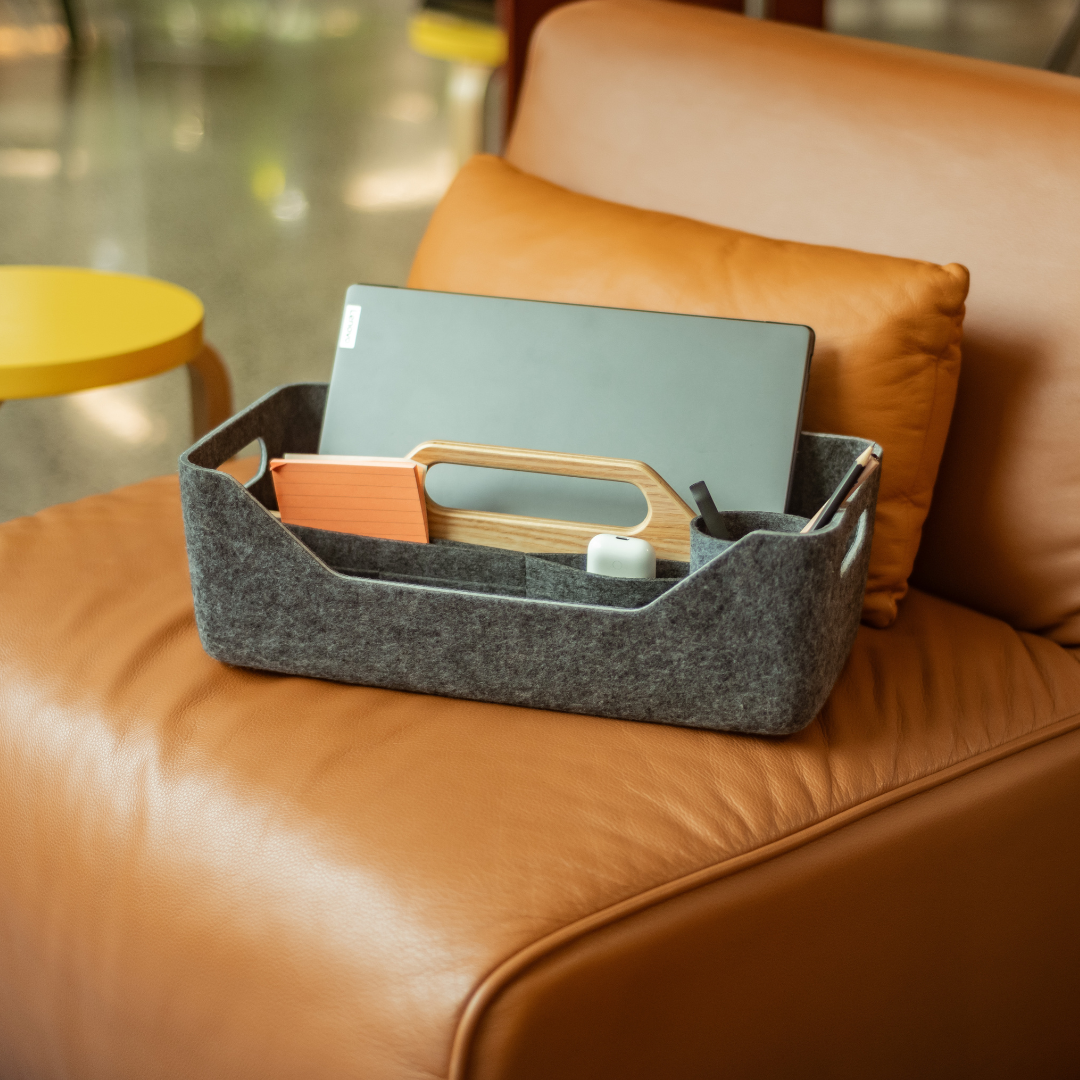The Evolution of Workplace Design

In recent years, the traditional concept of work has undergone a significant transformation. The advent of technology and changing attitudes towards productivity have paved the way for new ways of working that prioritize flexibility, mobility, and personalization. At the core of this shift is the realization that employees no longer need to be tied to a fixed desk to be productive. Desk Sharing was born.
As a result, the needs of workers have changed, and workers need a tools, furniture, but also concepts and spaces that help them navigate this new way of working. This, by the way, was the key motivation behind developing Gustav: one innovative solution that not only acknowledges the new ways of working but also offers solutions that cater to the diverse needs of employees.
The New Ways of Working:
The new ways of working refer to the adoption of flexible work arrangements that allow individuals to choose where and when they work. Remote work, co-working spaces, and activity-based working are some of the approaches that have gained popularity in recent years. These approaches empower employees to break away from the confines of a traditional office setup, fostering a more dynamic and adaptable work environment.
Portability and Mobility:
With the shift towards a more flexible work culture, it has become essential for workers to have tools and equipment that are portable and mobile. Lugging around heavy and bulky items is not conducive to the agile nature of modern work styles. We understand this need and have designed a product line prioritize portability without compromising on functionality. The new offerings need to enable workers to effortlessly set up their workstations wherever they go.
Ergonomic Considerations:
While flexibility and mobility are crucial, ensuring ergonomic correctness remains paramount. Prolonged hours of work, whether at a fixed desk or a mobile workstation, can take a toll on an individual's health and well-being.
Adjustable heights, customizable angles are some of the ergonomic considerations that need to be incorporated into today's designs. By promoting healthy postures and reducing strain on the body, the new generation of desk organizers helps workers maintain their well-being, wherever they work from today.
The Emotional Connection to Personalized Spaces:
Individuals still value the emotional connection to their workspace. Personalization plays a significant role in creating a sense of ownership and belonging. We understand this emotional need and always considered our products to be not only customizable, but also cater to the emotional need of 'owning a space'. You need to allow workers to create a space that reflects their personality, even in ever-changing work environments.
The Design Philosophy of Gustav:
All these elements are reflected in Gustav's design. We develop tools to address the evolving needs of workers by combining portability, mobility, ergonomics, and personalization. Gustav's aim is to empower employees to work efficiently and comfortably, regardless of their location.
Conclusion:
The new ways of working have brought about a paradigm shift in the design of workspaces. Gustav, with its innovative product line, embodies this transformation by acknowledging the need for flexibility, mobility, ergonomics, and personalization. By providing portable and ergonomic solutions that allow workers to personalize their spaces, Gustav is at the forefront of enabling individuals to thrive in the modern work landscape.


